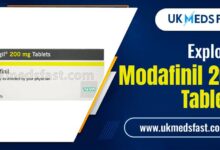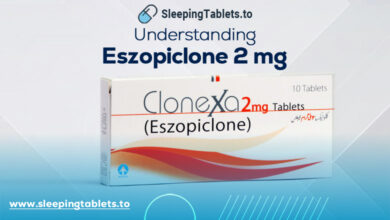
What to Do When You Have a Broken Tooth
Have you ever suffered a broken tooth while playing sport or while eating a particularly tough piece of steak? If so, you understand the odd combination of shock and pain that comes with the realization your tooth is broken.
You know the drill. It hurts, and you want to press on the affected area. You instinctively touch the broken tooth and almost immediately regret it.
You might be wondering what to do when you have a broken tooth. Should you go to the dentist? If so, when?
Here are several of the things we suggest you do when you break a tooth.
Table of Contents
Do Not Panic
It’s easier said than done, but it is essential to try to stay calm.
Once you have calmed down, you can assess the situation and figure out what to do next.
If it’s a chipped tooth or a broken tooth and there is a sharp edge, you will want to cover it with something to protect your tongue or cheek from being cut. For example, you can use sugarless gum or wax. If the tooth is cracked and there is no pain, you may not need to do anything.
Rinse With Warm Water
Rinse your teeth with warm water to remove any dirt or debris. This will help to clean the area and also to reduce inflammation and swelling.
Remember to use warm water only; avoid using hot or cold water, as this can further damage the tooth. Even better, if it’s available, opt to use warm salt water as it does a better job of cleaning your mouth.
In addition, doing this regularly could also reduce bacteria, protect your teeth, reduce bad breath, stop any bleeding, and reduce respiratory infections.
Apply Cold Compress
This can also help reduce swelling and pain as well as reduce bleeding.
To do this, simply wrap a cold, wet towel around the affected area. Another option is to use a cold pack or ice wrapped in a towel. Leave the compress in place for 10-15 minutes at a time. Repeat as needed.
Take Pain Medication
It is important to take pain medication as soon as possible.
You can take over-the-counter pain medication, such as ibuprofen or acetaminophen, or you can ask your dentist for prescription pain medication. This will help you to manage the pain and also keep you from getting an infection.
However, if the pain is severe, you may need prescription-strength medication.
See Your Dentist ASAP
See your dentist as soon as you have your dental emergency.
While it may be tempting to try and fix the tooth yourself, this is not recommended. There is emergency dentistry for a reason. Dental emergency dentists have the tools and experience necessary to fix your tooth correctly and immediately.
Depending on the severity of the break, the dentist may be able to repair the tooth with a filling, a crown, or even a tooth-colored bonding material. If the break is more severe, the dentist may need to perform a root canal procedure. If you try to fix it yourself, you could end up doing more damage.
Your dentist will be able to determine the best course of action for your particular situation, and they will be able to fix your tooth so that it looks and functions just like new.
Follow-up Appointments
It is important to schedule a follow-up appointment with the dentist to ensure that the tooth is healing properly.
This is also important when something unexpected happens to your tooth after your initial dentist appointment. Another check-up can also help determine if your teeth need any more treatment or if you need to medicate.
Get Dental Insurance
If you have dental insurance, your insurer will likely cover the cost of treatment. If you don’t have dental insurance, you will be responsible for the entire cost of treatment.
In looking for dental insurance, remember that treatment for a broken tooth can be expensive, so it’s essential to compare the costs of different dentists before you choose one.
And if the budget is really tight, just keep in mind that there are always a few things you can do to save money on dental treatment. This includes choosing a less expensive dentist or dental clinic. You may also be able to get a discount on your treatment if you pay in cash.
Practice Good Oral Hygiene
Brushing and flossing your teeth regularly can go a long way. Using an antibacterial mouthwash along with the two practices is also an excellent boost to make your teeth healthier.
You should avoid eating sugary or acidic foods, as they can worsen the damage to your tooth. It is also recommended that you avoid tobacco products and limit your alcoholic drinks. And, of course, drink plenty of water.
Note that people with diabetes who practice good oral hygiene can lower their blood pressure.
Watch What You Eat
Avoid hard, chewy, or sticky foods that can irritate the tooth. Stick to soft foods like soup, pudding, or yogurt. You should also avoid hot or cold foods and drinks. If the tooth is only cracked, you can still eat your normal diet.
However, if the tooth is broken or chipped, you should avoid foods that are hard, crunchy, or chewy.
A Broken Tooth Is Not the End of the World
It can be tempting to think that a broken tooth is the end of the world, but it doesn’t have to be. The things listed above are what you can do to minimize the damage and make sure you get the treatment you need.
Rinse your mouth with warm water and apply a cold compress. Also, do not hesitate to take pain medication and consult your dentist. And, of course, always watch what you eat and never forget to practice good oral hygiene.
Don’t let a broken tooth ruin your day. With a little bit of care, you can get the treatment you need and get back to enjoying your life.
If you want to learn more about other related topics, check out the rest of our site. We publish articles that are helpful for your everyday life!








